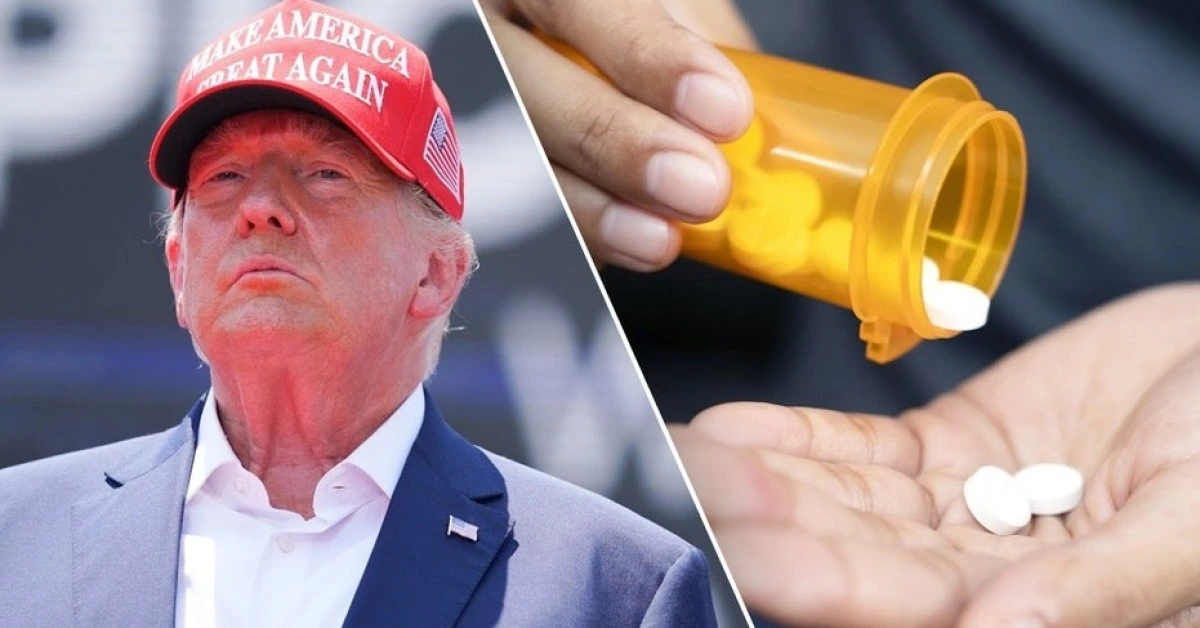
USA – US President Donald Trump has suggested imposing a 25% tariff on pharmaceutical imports, a move that could disrupt a sector that has traditionally been exempt from trade restrictions due to its essential role in healthcare.
The announcement is part of the administration’s broader effort to reshape trade relationships and encourage domestic production.
Speaking to reporters on Tuesday, Trump stated that the tariffs would be “around 25% and go very substantially higher over a course of a year.”
However, he also made it clear that companies manufacturing pharmaceuticals within the United States would avoid these penalties.
“When they come back into the United States and they have their plant or factory here, there is no tariff,” he explained.
Impact on the US pharmaceutical market
Although there is no clear timeline for when these tariffs might be implemented, Trump suggested that the measure is aimed at giving US manufacturers time to expand their production capacity before facing new trade barriers.
The US imported nearly US $176.7 billion worth of pharmaceutical products in 2023, according to data from the US International Trade Commission.
Since the 1990s, the country has become increasingly dependent on foreign drug manufacturers, with about 80% of active pharmaceutical ingredients (APIs) in US prescription drugs being produced abroad—primarily in China and India.
If imposed, the tariffs would not only impact Asian producers but also European exporters, particularly Ireland (20.4%), Germany (10.8%), and Switzerland (8.6%), which were among the top suppliers of pharmaceuticals to the US in 2023.
Supply chain considerations
There is ongoing debate about how and where these tariffs would be applied along the pharmaceutical supply chain.
Michael Lohan, CEO of Ireland’s Industrial Development Authority, believes that Irish exports might be exempt because most of the €58 billion (US $60.5 billion) worth of pharmaceutical products shipped to the US annually are intermediary products that require further processing before they are ready for sale.
“If you have an unfinished product, it needs to be finished and completed before it is turned into revenue and sale,” Lohan explained.
He also questioned whether tariffs would be applied at the point of sale or the point of transfer within the supply chain.
Additionally, he pointed out that under World Trade Organization (WTO) rules, most pharmaceutical products are currently not subject to tariffs. “One would hope that would continue,” he added.
The European Federation of Pharmaceutical Industries and Associations (EFPIA) declined to comment, stating that they prefer to wait for official action before speculating on potential impacts.
Industry reactions and concerns
Several pharmaceutical companies have voiced concerns over how these tariffs might affect patient access to medications.
Novartis highlighted that tariffs have typically not applied to medicines “because they could get in the way of patients receiving the medicines they need.”
The company urged US policymakers to eliminate unfair trade practices without inadvertently harming patients.
Meanwhile, Pfizer CEO Albert Bourla addressed the issue during an industry conference, acknowledging that while tariffs on China, Mexico, and Canada may not significantly impact Pfizer, tariffs on European pharmaceutical exports could be a challenge.
The company operates at least 10 plants in Europe, including three in Ireland, and 14 manufacturing facilities in the US.
“We are waiting to see how that could play out with the tariffs in places that have not been announced yet,” Bourla said, emphasizing that the industry remains uncertain about future trade policies.
XRP HEALTHCARE L.L.C | License Number: 2312867.01 | Dubai | © Copyright 2025 | All Rights Reserved